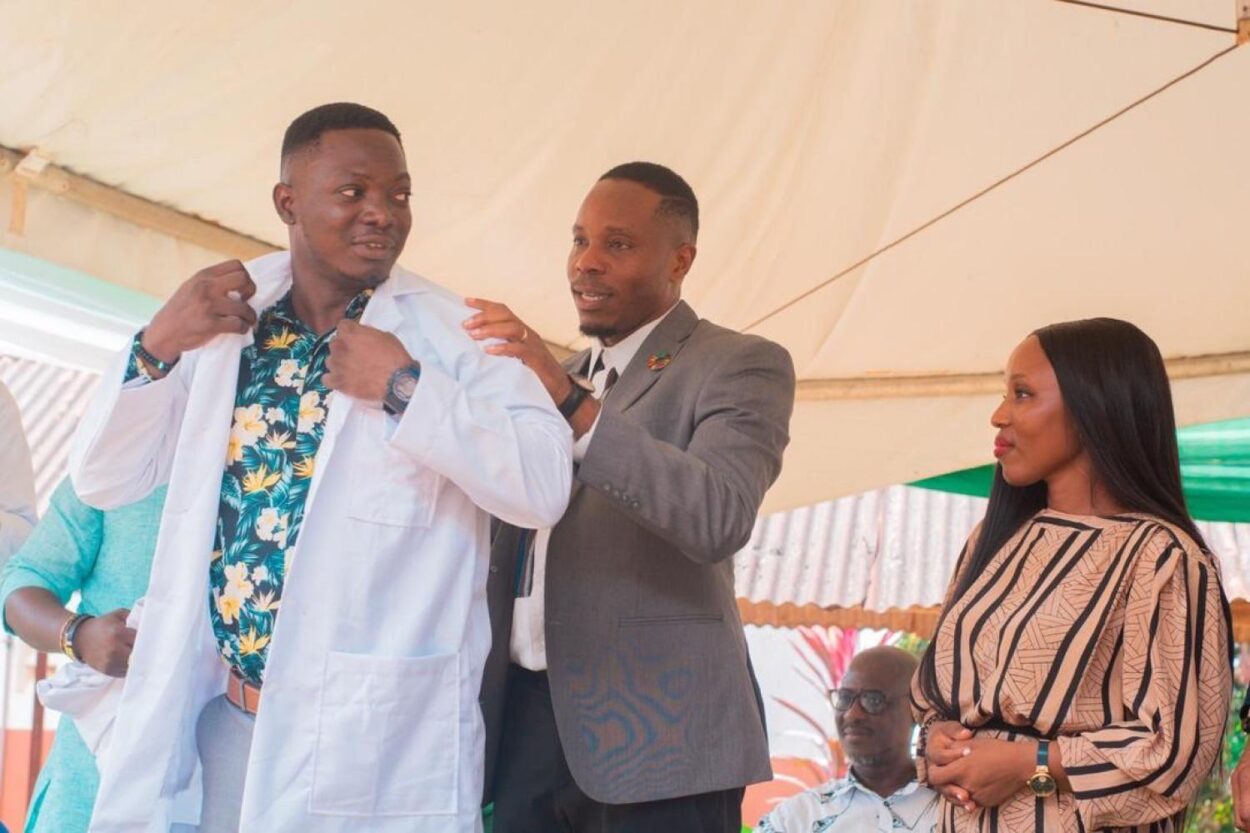The MIT K. Lisa Yang Center for Bionics and Sierra Leone’s Ministry of Health (MOH) have launched the first fully accredited educational program for prosthetists and orthotists in Sierra Leone.
Tens of thousands of people in Sierra Leone need orthotic braces and artificial limbs, but access to such specialized medical care in this African nation has been limited. On Nov. 7, the country’s inaugural class of future prosthetic and orthotic clinicians received their white coats at a ceremony in Sierra Leone’s National Rehabilitation Center, marking the start of their specialized training.
The agreement between the Yang Center and Sierra Leone’s MOH began last year with the signing of a detailed memorandum of understanding to strengthen the capabilities and services of that country’s orthotic and prosthetic (O&P) sector. The bionics center is part of the larger Yang Tan Collective at MIT, whose mission is to improve human well-being by accelerating science and engineering collaborations at a global scale.
The Sierra Leone initiative includes improvements across the supply chain for assistive technologies, clinic infrastructure and tools, technology translation pipelines, and education opportunities for Sierra Leoneans to expand local O&P capacity. The establishment of the new education and training program in Sierra Leone advances the collaboration’s shared goal to enable sustainable and independent operation of O&P services for the tens of thousands of citizens who live with physical disabilities due to amputation, poliomyelitis infection, or other causes.
Students in the program will receive their training through the Human Study School of Rehabilitation Sciences, a nongovernmental organization based in Germany whose training models have been used across 53 countries, including 15 countries in Africa.
“This White Coat Ceremony is an important milestone in our comprehensive strategy to transform care for persons with disabilities,” says Hugh Herr SM ’93, a professor of media arts and sciences at the MIT Media Lab and co-director of the K. Lisa Yang Center for Bionics at MIT, who has led the center’s engagement with the MOH. “We are proud to introduce the first program in Sierra Leone to offer this type of clinical education, which will improve availability and access to prosthetic and orthotic health care across the nation.”
The ceremony featured a keynote address by the Honorable Chief Minister of Sierra Leone David Sengeh SM ’12, PhD ’16. Sengeh, a former graduate student of Herr’s research group and longtime advocate for a more inclusive Sierra Leone, has taken a personal interest in this collaboration.
“The government is very happy that this collaboration with the K. Lisa Yang Center for Bionics at MIT falls within our national development plan and our priorities,” says Sengeh. “Our goal is to invest in human capacity and strengthen systems for inclusion.”
Francesca Riccio-Ackerman, the graduate student lead for this project, adds that “this program has created opportunities for persons with disabilities to become clinicians that will treat others with the same condition, setting an example in inclusivity.”
The inaugural class of O&P students includes 11 men and women from across Sierra Leone who have undergone intensive preparatory training and passed a rigorous international standard entrance exam to earn their position in the program. The students are scheduled to complete their training in early 2027 and will have the opportunity to become certified as associate prosthetist/orthotists by the International Society for Prosthetics and Orthotics, the gold standard for professionals in the field.
The program utilizes a hybrid educational model developed by the Human Study School of Rehabilitation Sciences.
“Human Study’s humanitarian education program is unique. We run the world’s only prosthetics and orthotics school that meets international standards at all three levels of the P&O profession,” says Chris Schlief, founder and CEO of Human Study. “We are delighted to be working with the Ministry of Health and MIT’s K. Lisa Yang Center for Bionics to bring our training to Sierra Leone. Prosthetics and orthotics have an essential role to play in increasing mobility, dignity, and equality for people with disabilities. We are proud to be a partner in this groundbreaking program, training the first generation of P&O clinicians. This program will have an impact for generations to come.”
As for Sengeh, who authored the book, “Radical Inclusion: Seven Steps to Help You Create a More Just Workplace, Home, and World,” the new program in Sierra Leone embodies his vision for a more inclusive world. “Personally, as an MIT alumnus and chief minister of Sierra Leone, this is what true vision, action, and impact look like. As I often say, through Radical Inclusion #WeWillDeliver.”
